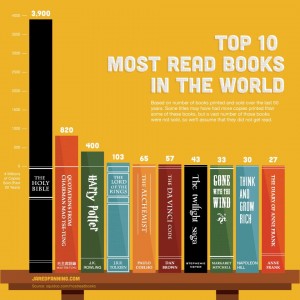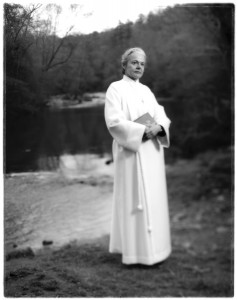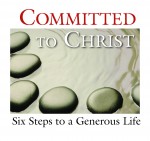
From this Day Forward – Seek God*
Sycamore Creek Church
May 31 & June 1, 2015
Tom Arthur
Peace friends!
You’ve heard of Chuck Norris jokes, right?
At Chuck Norris’ wedding, instead of flower girls dropping flower petals, they were tossing dead ninjas to walk on.
After his wedding, Chuck Norris sent “You’re Welcome” cards to his guests.
Chuck Norris is starring in the sequel to “Four Weddings and a Funeral”. It’s called “Four Funerals and a Funeral.”
Chuck Norris tried to be romantic once, so he wrote a love letter to his girlfriend. It went something like this: Chuck Norris. She married him.
Ok, maybe Chuck Norris isn’t the best model for how to live a happy marriage. So today we’re beginning a new five-week series called From This Day Forward. For those of you not married, we want to spend the next five-weeks helping you prepare for marriage someday. For those of you who are married we want to make your marriage better. And if you’re single and have no plans for marriage, there’s nothing more holy about being married than being single. Jesus was single after all.
When we get married there are some stereotypical dreams many of us have. If you’re a lady, you probably dreamt a lot about the wedding, what kind of dress you’d wear, how many kids you’d have, what you’d name them, how you’d write your name. If you were a man you maybe dreamt of having sex twice a day and three times on Sunday. So how many of you are still dreaming? Some of us may be asking, is a good marriage possible? Today I am celebrating 18 years of marriage, and I can tell you that the answer to this question is: Yes, a good marriage is possible, but it is not likely if you do what everyone else is doing.
Divorce Statistics
According to a New York Times article summarizing the current research on divorce, the divorce rate is thankfully on the decline. In the 1970s-1980s it was 45-50%. But current trends still show a 33% divorce rate. The reason for this decline is complicated. One key reason is people are getting married older. In 1890, Men got married at age 26 and women at age 22. In 1950 men got married at age 23 and women at age 20. But in 2004 men were getting married at age 27 and women at age 26. Research also shows that the more education and income you have, the less likely you are to divorce. Although if you make less and have less education, the divorce rates are comparable to the 70s & 80s. Add to this continued change in gender roles. 2/3 of divorces are initiated by women (Men, you better pay attention the next five weeks!). The social acceptability of single parenting has reduced the number of “shotgun weddings.” And the feminist revolution of the 70s & 80s has slowly begun to find a new normal for gender roles in a marriage. All of these things have contributed to a decline in the divorce rate.
Although there is one more big reason the divorce rate is in decline: fewer people are getting married. More people are cohabitating, living together without getting married. More cohabitation = more “breakups” rather than more “divorces.” According to an Atlantic Magazine article, in the 1960s there were less than 500,000 people cohabitating. In 1996 that number jumped up to 2.9 million, but by 2012 7.8 million people were cohabitating.
This raises an interesting question: should you “test drive” the relationship before you decide to “buy” the marriage? While this may sound like common sense, research has shown that cohabitation can have a negative effect both on the quality of marriage and the length of it: “The likelihood that a marriage would last for a decade or more decreased by six percentage points if the couple had cohabited first” (New York Time article). Prof. Pamela J. Smock—PhD, University of Michigan—says, “From the perspective of many young adults, marrying without living together first seems quite foolish…Just because some academic studies have shown that living together may increase the chance of divorce somewhat, young adults themselves don’t believe that” (New York Time article). So if you want to do what everyone else is doing, live together before you get married. But if you want to give yourself the best chance for a healthy long-lasting marriage, do what no one else is doing: wait to move in until you’ve made the life-long commitment.
So if you’re an average person, you’ve got a 33% rate of divorce in your marriage. What other area are you satisfied with a 33% chance of negative outcomes? 33% chance of getting cancer from eating something? 33% chance of not getting your money back from the bank? 33% chance of getting attacked outside your house by man-eating-cats? I’m not satisfied with a 33% chance of divorce. I want to live fully into the vows I made when I got married:
To have and to hold,
from this day forward,
for better, for worse
for richer, for poorer,
in sickness and in health,
to love and to cherish,
until we are parted by death.
This is my solemn vow.
This is not a beat up on divorce series. It’s a series about making changes from this day forward. We’re crossing a line from the past and living by God’s grace into the future. We’re going to do this over the next five weeks by make five commitments:
1. Seek God
2. Stay Pure
3. Have Fun
4. Fight Fair
5. Never Give Up
Seek God First
Let’s start at the beginning: Seek God first. Most of us are seeking not God first but a spouse first. We have this idea floating around in our culture that you can’t be happy until you meet the ONE. You’ve heard that one right? The ONE soul mate out there for you. The ONE who you are always looking for and if you miss that ONE person, then you’re doomed for the rest of your life. Now, I don’t believe that God has only ONE right person for you (there are a lot of good God-honoring people you could marry), but there’s something wrong even deeper with this way of thinking. What if someone said, “I think I’ve found my TWO”? TWO? Yes, your TWO. Your ONE is God and your spouse is your TWO. Jesus teaches us that:
“You must love the Lord your God with all your heart, all your soul, and all your mind.” This is the first and greatest commandment. A second is equally important: “Love your neighbor as yourself.”
~Jesus (Matthew 22:37-38 NLT)
God is your ONE. Your spouse is your TWO. You get that mixed up, and you’ve built a faulty foundation. So let’s explore this idea further with two further commitments. If you’re not married, but you’d like to be married someday then make this commitment today:
1. I will seek the One while preparing for my two!
Too many of us put the God thing off until later when you “really need it.” We party now and find God later. This reminds me of something St. Augustine said:
“Oh, Master, make me chaste and celibate – but not yet!”
~St. Augustine (4th & 5th Century Church Leader)
If you hope to have a godly marriage one day, seek a godly life today. Here’s the key: It doesn’t matter what you want, like attracts like. If you want a particular kind of person to marry, then you must first seek God to become that kind of person. If you want someone who has had multiple sex partners, then by all means, have multiple sex partners. If you want to marry someone who tells you white lies, then learn to tell the best white lies right now. If you want someone who is critical, then learn to criticize before you get married. If you want someone who has no idea how to manage money, then don’t learn how to manage your own money. If you want to marry someone who is in denial of their mental and physical health, then deny your own mental and physical health issues.
During my second year of college I began to notice some serious relationship challenges I was having with my family, particularly my dad. I made a decision that year that has had positive consequences for the rest of my life. I decided to go see a counselor. You see, my dad was not being the dad that I wanted him to be. I was so frustrated and angry with him. Over a year of counseling I began to realize that the problem wasn’t with my dad. The problem was with my expectations of my dad. Moreover, I began to realize that I played this pattern out with most everyone around me. I was trying to get them to all fill my expectations and if they didn’t, then I was sorely frustrated with the relationship. In a word: I was very judgmental.
Over that year, my counselor helped me in some very subtle ways to let go of my expectations and have a relationship with the person my dad actually was. It was incredibly freeing to give up judgment and let grace define the relationships around me. My relationship with my dad improved in significant ways. But even more importantly, I met Sarah, my future wife, during this year. I went into this relationship with her with my eyes wide open about my own judgmental tendencies and patterns of relating to people around me. I can’t say I don’t still struggle with this, but it’s one thing to be ignorant or in denial, and it’s another thing to actively seek God’s grace for a better way forward.
If you’re not yet married and you want to be, then begin by seeking the ONE while preparing for the two. For those of you who are already married, here’s a commitment for you to make today:
2. I will always seek the One with my two!
We have a tendency to idolize our spouse when we put them in the ONE spot. Perhaps the highest moment of idolization is the most romantic moment ever captured on film. You know it. The “You complete me” scene in Jerry Maguire. Come on! Sarah does a lot of things for me, but to think that she is the total completion of myself is to say that Jesus was incomplete without a spouse and that God is not the one who ultimately completes each one of us! This idolization puts undue pressure on our spouse who is incapable of meeting all our needs. When they let us down, we stop idolizing them and we demonize them. When we’re idolizing our wives we say, “She’s so organized and driven and passionate.” But when then we demonize the saying, “She’s a control freak. She wants everything her way. She just nags…nags…nags…” When we idolize our husbands we say, “He’s so laid back, comfortable and easy going.” Then we demonize him saying, “He’s a bump on a log. He does nothing. He’s not a leader. All he does is play video games.” In each case, we’re making our two our ONE rather than seeking the ONE with our two.
So how do we seek God together? There’s lots of things I could say about this. We could read the Bible together. We could attend worship regularly together. We could join a small group together. We could serve together in the church and community. We could raise home run kids together. All of these things are excellent ideas and practices. In fact, the common wisdom that Christians divorce at the same rate as everyone else is actually false. It all comes down to how you define Christian. Ed Stetzer, Executive Director of Lifeway Research, summarizes the effect these spiritual practices have on our marriages:
“What appears intuitive is true. Couples who regularly practice any combination of serious religious behaviors and attitudes—attend church nearly every week, read their bibles and spiritual materials regularly; pray privately and together; generally take their faith seriously, living not as perfect disciples, but serious disciples—enjoy significantly lower divorce rates than mere church members, the general public, and unbelievers.” ~Ed Stetzer, Exec Dir of Lifeway Research (Christianity Today Article)
When you practice these spiritual habits together regularly, your chance of dodging divorce and staying happily married improves:
“Catholic couples were 31% less likely to divorce; Protestant couples 35% less likely; and Jewish couples 97% less likely.”
~Ed Stetzer, Exec Dir of Lifeway Research (Christianity Today Article)
So let me focus down on one keystone habit of all of these. A “keystone habit” is one discipline triggers positive or negative habits across the board. For example: flossing is a keystone habit. I floss every morning because it gets me going with the day in the right direction. When I stop then my discipline goes out the window. I stop exercising. I stop eating well. I get fat. I stop working because I don’t have the energy. I get fired. In frustration I speed home. I run a red light. A cop chases me. When I finally get pulled over after a high speed chase on the news, I go to jail. All because I stopped flossing! Flossing is a keystone habit. OK, you get the point.
The keystone habit I want to encourage you to make a commitment to today is to pray together. Seek the ONE with your two by praying together every day.
If my people who are called by my name will humble themselves and pray and seek my face and turn from their wicked ways, I will hear from heaven and will forgive their sins and restore their land.
~2 Chronicles 7:14 NLT
Can we say, “Restore their marriage?” I think so. It all begins with humbling ourselves before God together in prayer. But how do you pray together? It seems kind of obvious, but I think most of us are a little clueless about how to do this. I want to share with you one way that Sarah and I pray together each day. We meet in bed at or around 10PM (if you’re not married, don’t pray in bed together!). Then we use the Daily Devotions for Families and Individuals from the Book of Common Prayer (you can find the whole thing here). Here’s the prayer for bedtime:
At the Close of Day
Psalm 134
Behold now, bless the LORD, all you servants of the LORD, *
you that stand by night in the house of the LORD.
Lift up your hands in the holy place and bless the LORD; *
the LORD who made heaven and earth bless you out of Zion.
A Reading
Lord, you are in the midst of us and we are called by your
Name: Do not forsake us, O Lord our God. Jeremiah 14:9,22
The following may be said
Lord, you now have set your servant free *
to go in peace as you have promised;
For these eyes of mine have seen the Savior, *
whom you have prepared for all the world to see;
A Light to enlighten the nations, *
and the glory of your people Israel.
Prayers for ourselves and others may follow. It is appropriate that
prayers of thanksgiving for the blessings of the day, and penitence for our
sins, be included.
The Lord’s Prayer
The Closing Prayer
Visit this place, O Lord, and drive far from it all snares of the
enemy; let your holy angels dwell with us to preserve us in
peace; and let your blessing be upon us always; through Jesus
Christ our Lord. Amen.
The almighty and merciful Lord, Father, Son, and Holy Spirit,
bless us and keep us. Amen.
That’s it. It takes us about five minutes to pray through this prayer each night. Other friends of mine take a moment to ask what went well and what didn’t go so well in their day. Then they thank God for the good stuff and ask God for help with the bad stuff. Others just pray the Lord’s Prayer together each day. Another set of friends uses a prayer list together that has all the important people in their life and various other prayer requests on it. Sarah’s parents take time each morning at breakfast to listen to Pray as You Go then pray for two people they received Holiday Cards from. They then send them a post card letting them know they prayed for them. Another couple reads a devotional together and discusses it before they go to bed each night. Another friend texts prayers back and forth throughout the day. There’s no one right way to do this. There are lots of good ways to pray together. The question is: will you seek the ONE with your two by praying together daily?
OK, I know it’s complicated for some of you. You’ve got a spouse who isn’t a believer. So do you pray for your spouse each day? There’s a popular country song out right now by the Notorious Cherry Bombs titled, “It’s Hard To Kiss The Lips At Night That Chew Your Ass Out All Day Long.” Well, you could say it’s hard to chew the ass off the person you’re praying for all day long. It’s really hard to fight with someone you’re praying with. It’s hard to commit adultery or get hooked on porn when you have regular spiritual intimacy with your spouse. It’s hard to divorce someone you’re seeking God with.
So you’re thinking this is too hard? Fine, take the odds. 33% failure rate. Or you’re thinking, But we don’t do that. Well, from this day forward do it. But we don’t like each other. From this day forward. We don’t know how to do this. From this day forward. But I’m uncomfortable. Get over it. From this day forward!
I was listening to an interview with Elmer Towns. He was asked about the recent death of his wife. He said that toward the end of her life as she lay in bed drifting between this life and the next, her favorite gospel song came on the radio. Elmer prayed to the Lord in that moment, “God, this would be a good time for my wife to end this life and begin the next.” By the end of that song, the Lord answered that prayer. I sat in my car crying and thought, I want to be the kind of husband who prays with and for his wife so much that when it’s time for her to meet the ONE, I’m ready to let go of my two.
Lord, make it so in each of our marriages.
*This message is based on a message first preached by Craig Groeschel.







Recent Comments